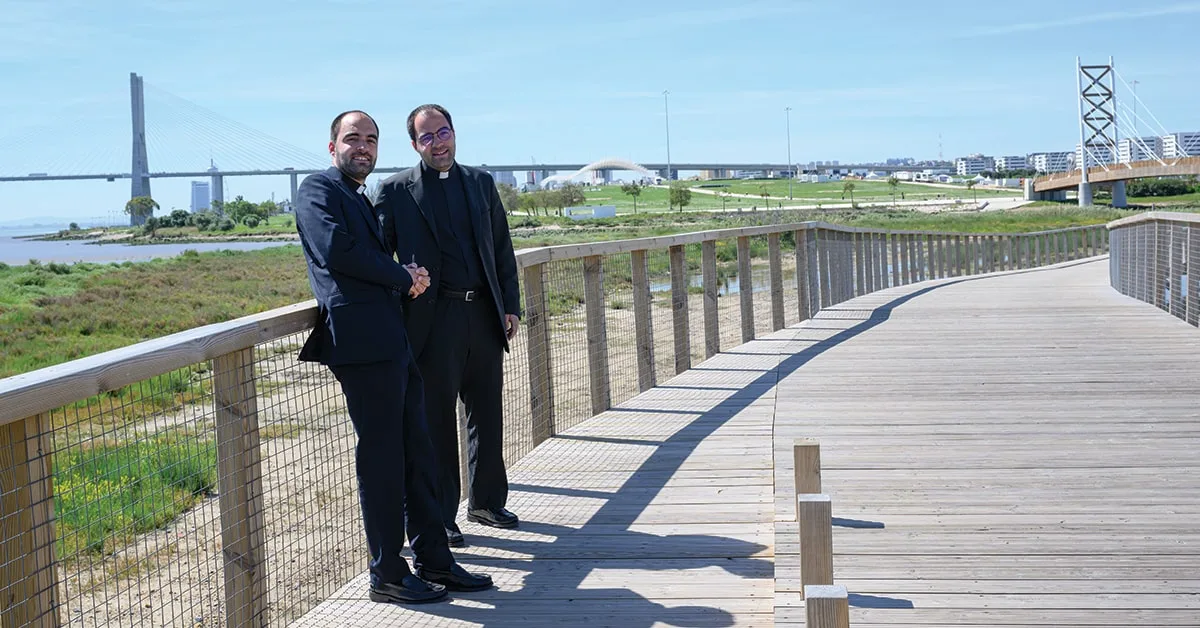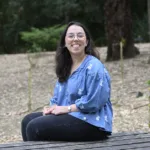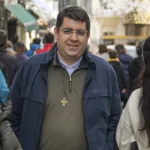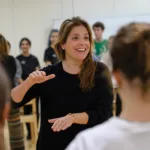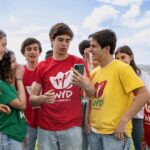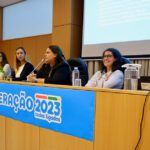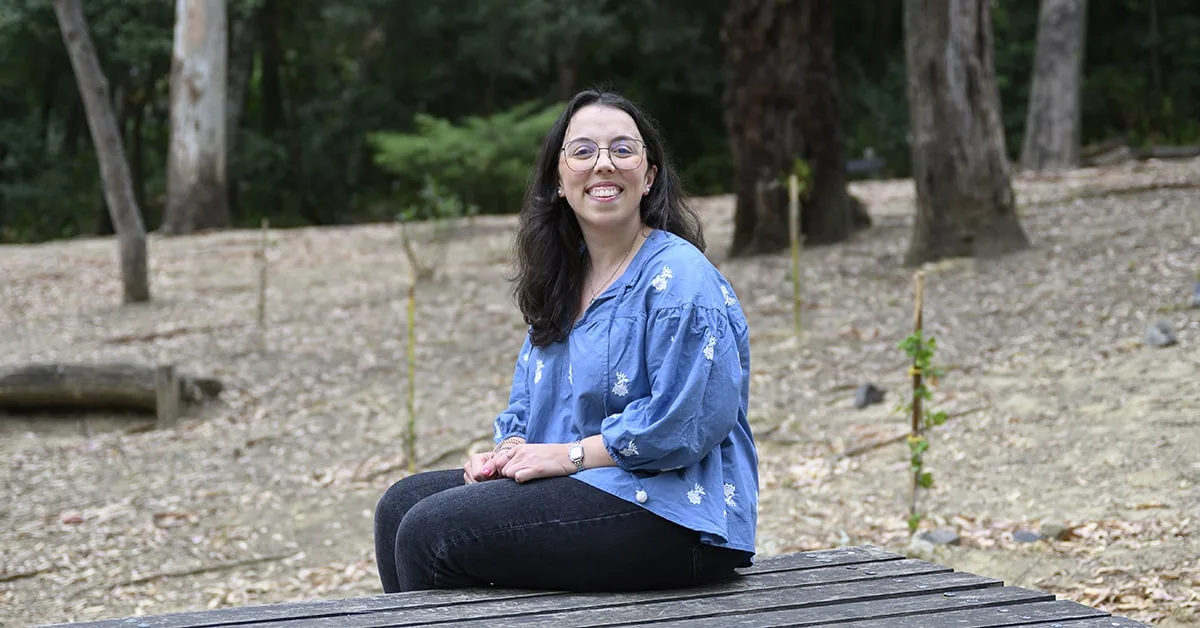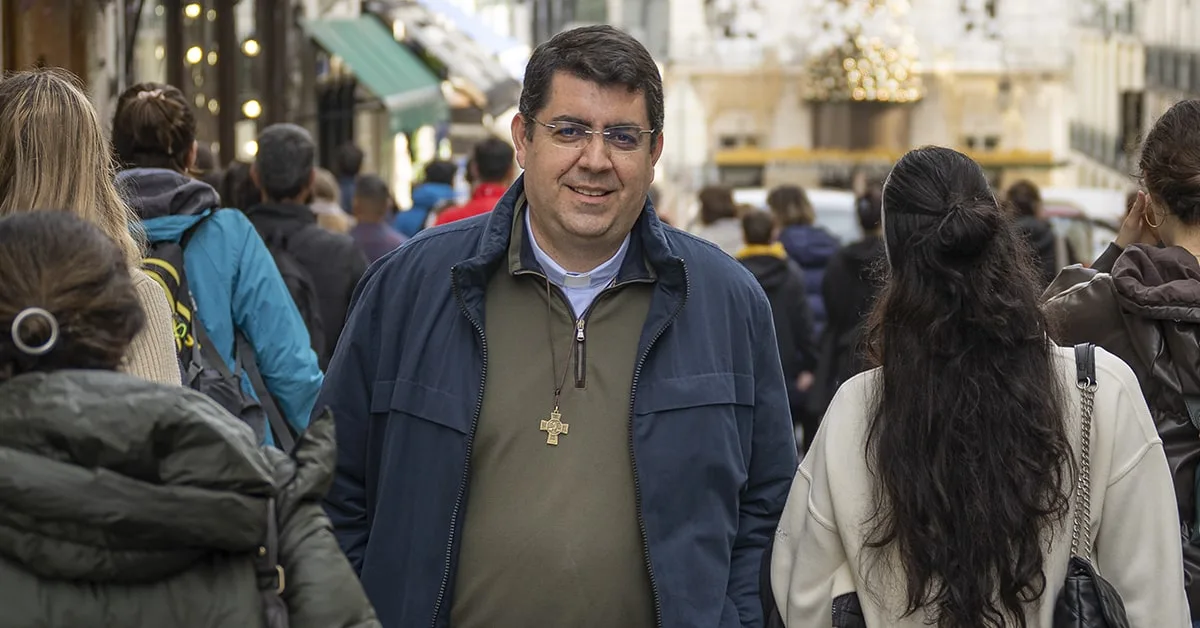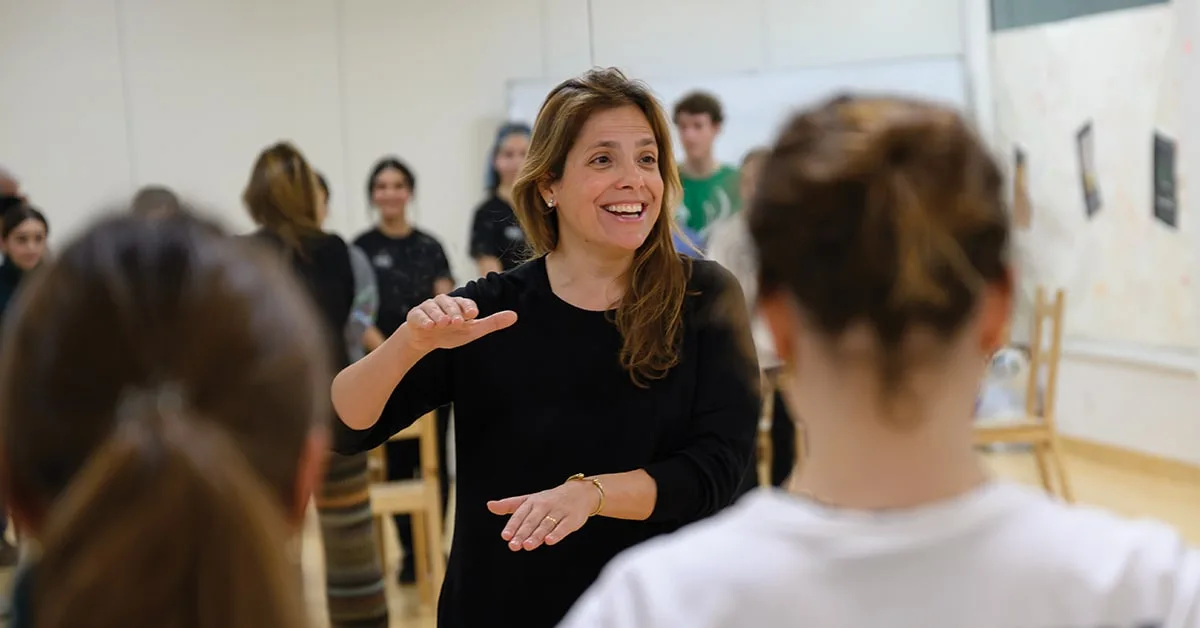Pedro and Afonso grew up together in the family, in the environment of the Salesian school, and in the Church. They were both ordained priests on July 3, 2022, by Cardinal Patriarch Manuel Clemente at the Jerónimos Monastery. Parish priests in Lisbon and Loures, Father Pedro Sousa and Father Afonso Sousa experienced the World Youth Day Lisbon 2023 from the inside.
It is thrilling to interview two priests who are twin brothers simultaneously. Do you understand this internal thrill?
Father Pedro Sousa: It is indeed wonderful to think how God wanted to call both of us to the vocation of priesthood. Interviewing two priest brothers is already something extraordinary, but it becomes even more extraordinary when they are twins. What we have learned over these almost two years of being priests is that embracing the priesthood together allows us to understand each other even more and better. So, when we talk, we often complete each other.
Who is the elder?
Father Afonso Sousa: It’s not an easy question; you start the interview with a difficult question. [Laughter] I’m joking, everything is resolved between us, but we don’t have a scientifically objective answer. We were born from two sacs, and being a cesarean, the doctor took one out first, but that doesn’t mean it was the last one to be formed, and therefore, the youngest. But you can start with my brother who was the first to go to the seminary.
So, I’ll start with you, Fr. Pedro. Can you give a brief introduction?
Fr. Pedro: I am Father Pedro, I am 26 years old, I come from a Catholic family that raised me in the faith. Besides my twin brother, I have two other sisters. With my twin brother, I am the middle sibling. From the 5th to the 9th grade, I studied at the Salesian School of Manique. At 14, when I was about to start the 10th grade, I went to the Diocesan Minor Seminary. I was ordained a priest in 2022 and am currently the parish priest of the parishes of Santo Antão do Tojal, São Julião do Tojal, and Fanhões in the municipality of Loures, in Lisbon.
And now, please, Fr. Afonso.
Fr. Afonso: I am Father Afonso, I am also 26 years old, the rest is similar in terms of family. But we are both unique in God’s eyes! I practised several sports, enjoy following football, and listening to good music. I never forget what Don Bosco said: “A house without music is like a body without a soul.” Radio and the world of music have always been very present in our lives. I was called by the Lord at 15 and left many things to enter the seminary for the 11th year of school. Today I am a priest, we are priests! I am the parochial vicar of the Parish of Parque das Nações, where the main events of World Youth Day took place.
The last interview in the SALESIAN BULLETIN was with Matilde Trocado, a former Salesian student. The two of you are also, curiously, former students. Did the school environment influence your vocation?
Fr. Afonso: Undoubtedly. There is a mark of Don Bosco in us. The way of building honest citizens and good Christians is still visible in us today. Being a Salesian student is for life. I fondly remember so many moments we spent at the Salesians, school parties, “good mornings,” activities, classes, the National Salesian Games that were held in Manique in 2012 and in which we had the grace to be involved in the organization; we were in the 9th grade. What memories! But above all, getting to know the life of Don Bosco, the “Father and Teacher of Youth,” of us, young priests! Words he left to those kids in Turin and leaves us today. We also had the grace to have some vocational experience with the Salesians, the so-called “Meetings with Don Bosco,” even before the pre-seminary in Lisbon. For me, the Salesian vocation even crossed my mind: is the Lord calling me to be a Salesian? Then I ended up discovering the priestly vocation in the proposal to be a diocesan priest.
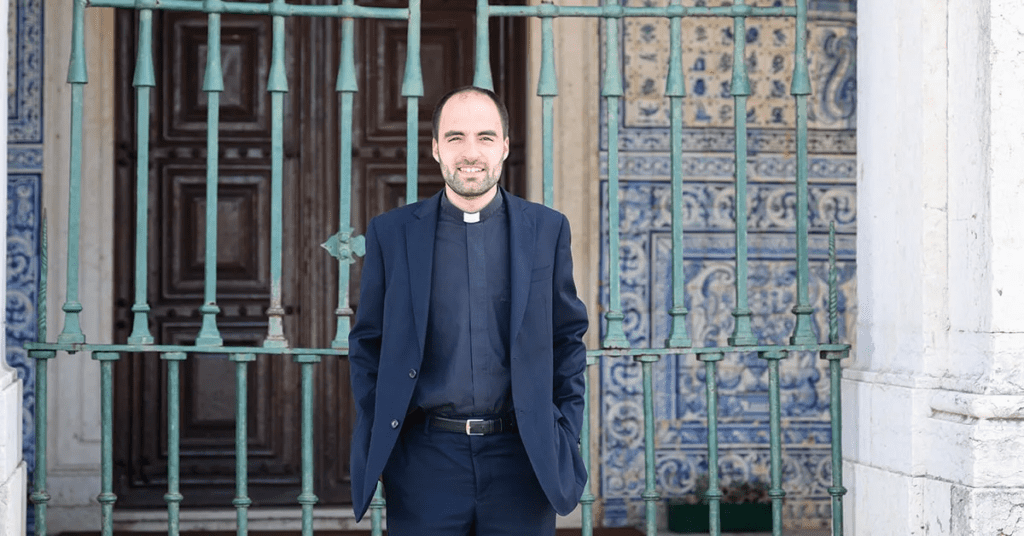
Was family education, as you mentioned above, decisive in your vocation?
Fr. Afonso: Our vocation, I think I can speak for both of us, has the mark of the family. Our family has always been a landmark, like Mother Margarita was for Don Bosco. Thus, the decisions to go to the seminary were discussed within the family. Even today, we have a weekly family moment where each child (of the four) shares. The family made us grow, taught us the essentials, and, as Pope Saint John XXIII shared when asked about his childhood, the love of God we learned in the family setting.
Fr. Pedro, can you mention any aspect?
Fr. Pedro: A clear mark of the education we received is prayer. Learning to pray together at the table before meals was the first step for the presence of Jesus to always be in our lives. We didn’t start praying when we went to the seminary; it was at home where we took our first steps.
And Fr. Afonso, besides the family, were you motivated by your brother’s example?
Fr. Afonso: I didn’t go to the seminary because my brother was there. It’s not about imitation. Now, as we’ve been hearing in the daily Easter readings, testimony leaves a mark and, undoubtedly, seeing my brother joyful and happy influenced me. But it was a free and personal response. We don’t follow each other around; each responds for themselves. I was called by name to the seminary. I still remember it as if it was this morning – a priest comes to me and says: Afonso, the Church is calling you to the seminary! It was to me! It’s impressive how God calls us.
In a changing world, what expectations do you have for the future of the priesthood, Fr. Pedro?
Fr. Pedro: Looking at this world, I see how our mission as priests is so necessary and important. If there is war, it is because there is a lack of the presence of Jesus. If there is violence, it is because Jesus has no space in the heart of man. If there is instability, it is because Jesus’ gifts do not nourish the lives of our contemporaries. And we priests are called to bring Jesus into the lives of people. The expectations for the future of the priesthood are promising because there is no shortage of work. [Laughter] Just as before, the world needs Jesus, needs men who leave everything to follow the Master and be witnesses of the joy of living the Gospel. The priesthood is, therefore, a sign of God’s love for each person, an expression of Jesus’ loving heart. Priests are not only necessary but also cherished by God to continue in the world the experience of the Good Shepherd: that not one of the sheep may be lost. For all this, I can only conclude: expectations are very high.
We are in the presence of two young priests. In your opinion, is this vocation, in the youth context, “out of fashion”?
Fr. Pedro: I wouldn’t say “out of fashion,” but it’s less widespread. That’s why we want to announce with our lives that the vocation to the priesthood is today, as it was two thousand years ago, a gift from Christ to the Church and a clear sign that we can give our lives like Jesus, that we can be in the image of Jesus.
Fr. Afonso: Yes, we can be of Jesus. May I learn to say yes to God’s plan. And this was yesterday, it is today, and it will be tomorrow… every year we must learn to say yes. Yes to God! And responding is not about trends but about good manners… [Laughter] Of course, being a priest today, in a context where unfortunately some brother priests have committed some serious misdeeds, where the priesthood is no longer the necessary path to study and become literate, is surely a response to a calling. This also helps to purify the meaning that leads a young man to go to the seminary.
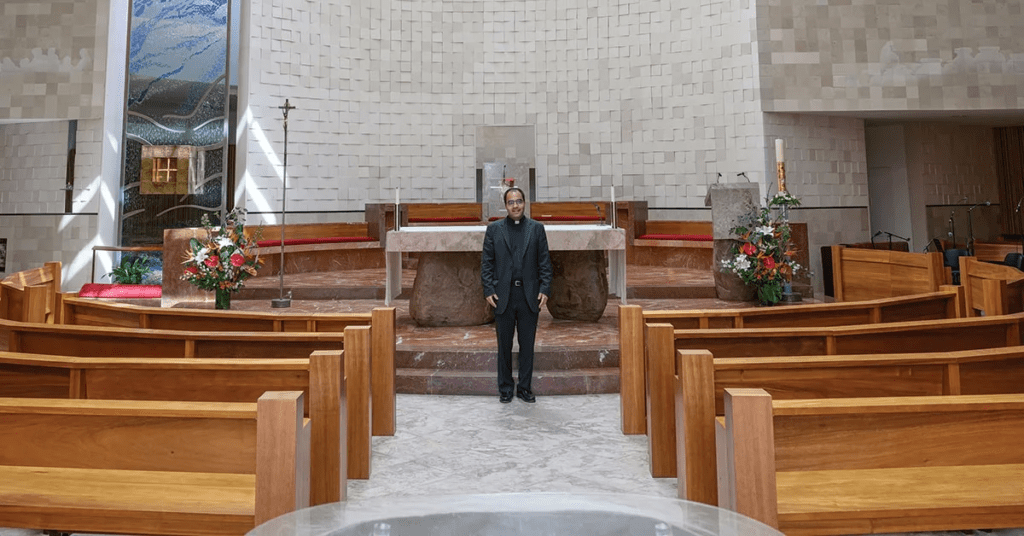
Fr. Afonso, you are an assistant priest in the parish of Our Lady of Navigators, Parque das Nações. How is it to pastor an urban parish of high social standing?
Fr. Afonso: The city parish and the rural parish are often pointed out as opposites. I think wrongly. Yes, there are differences, but the essence is the same: to proclaim the Paschal Mystery of Jesus, evidently with somewhat different specifics. In the city parish, one notices mobility, people easily go to one parish today and another tomorrow. A significant challenge I notice, and which is crucial for the future, is to create a community spirit, almost militant – I think the correct sense of the expression is understood – amid mobility. It is necessary to continue to propose to everyone, even to those who possess more goods, detachment, as the followers of Jesus demonstrated well in the first Christian communities. However much one accumulates goods, they will not go with you to heaven. The place in heaven is not bought; it is the grace of a life lived daily with Jesus.
Fr. Pedro, you are a parish priest in the Municipality of Loures, with three communities under your care. How is it to manage this spiritual territory alone?
Fr. Pedro: Being a parish priest of three parishes is a challenge and a mission that God gives me. Firstly, because I am very young and am learning to be a priest and specifically to be a parish priest. Secondly, because I feel in my parishes the experience of being a mission land. I
feel that Jesus is not yet known by everyone, that many who come to me have never met Jesus. Ultimately, I feel the mission to show that the thirst and hunger that people have will only be satisfied in Jesus.
I ask each of you, what can two 26-year-old priests bring new and different to the mission of the priest, to the Church, and to society itself?
Fr. Afonso: New and different? Probably, humanly speaking, I have nothing to say… just to echo the Gospel, which yes, was written a long time ago… but if we look with a supernatural sense, Christ is always new! And what I have to offer to each one who crosses paths with me is, as the root of the word suggests, that the Cross of Christ is saving, and the joy of wanting to be Holy! Yes, I, you, we can be Saints!
Fr. Pedro: We can bring to the Church the dream of building the Gospel today, without fear and without feeling defeated or without strength. One of the things we see is that the Gospel is always new and awakens in us the renewed novelty of following Christ.
Have you ever participated in a World Youth Day?
Fr. Afonso: Yes, we had already participated together in World Youth Day in Krakow in 2016. We were seminarians and accompanied the youth group from the Parish of Merceana, in Alenquer. How did we get involved with this group? After going on a walking pilgrimage to Fátima with this parish, where a significant number of the youth group members were present, they invited us to accompany them. And so, we embarked with them on this adventure of going to Krakow, to our first World Youth Day. We couldn’t participate in the fundraising and preparation meetings, as they coincided with seminary life. But then it was an adventure, we sang, danced, prayed, talked, saw the Pope! How wonderful it was!
Near your parish, Fr. Afonso, where the WYD took place, did the young people get excited about what they saw? Do you feel that the enthusiasm persists?
Fr. Afonso: World Youth Day marked me, marked this person and that person, it marked us. Even today, while providing spiritual direction to some young people, whom I spiritually accompany, often while walking through Parque Tejo, the joy, the memory of how spectacular what happened there was always returns. The fervour is still felt; just a few days ago at the vicariate meeting for catechesis, the WYD anthem was sung, and everyone sang and danced. Does the enthusiasm persist in everyone? No. But it is still felt, it is still alive, there are still posters… Of the many kits I helped assemble with young parishioners, backpacks and water bottles are still seen… there are still very visible marks.
And in yours too, Fr. Pedro, WYD invaded part of the Municipality of Loures. Are the echoes still audible?
Fr. Pedro: In the Municipality of Loures, there are still echoes of WYD. The relationship I have today with local authorities owes much to WYD; a network of proximity with the City Council and its services, as well as with the Parish Councils and Associations, was created, an interaction entirely due to WYD. Besides, it’s fun to walk around Loures and see people still wearing the WYD T-shirt or even recalling episodes and moments of this great event.
Do you think this is a decisive time not to let the seed planted by WYD die?
Fr. Afonso: The seed is sown, but as Jesus teaches us in the Gospel, many times we do not gather or see the fruit. The influence of the WYD Lisbon 2023 generation is still beginning. I believe that its fruits are not yet visible, there is still much to grow… to respond to… the Pope’s words are still being savoured in various pastoral activities, several couples from the Teams of Our Lady are re-reading the texts, the Pope continuously references WYD in his speeches and messages… it was undoubtedly a milestone! But the seed of the journey begins in each one of us, in the search to return to what we heard, in the resolutions we made and have not yet fulfilled.
Would you like to give an example of what has been done in your parishes to keep the youth spirit alive?
Fr. Pedro: To keep the youth spirit ignited from WYD, we launched this year a reorganization of catechism years from the 7th grade and relaunched the youth group. Unlike what was done before, where meetings were dispersed in small groups, each in their own place, we concentrated everything in a Pastoral Centre in a room dedicated to the youth that has a confessional from WYD set up.
If you had to summarise in one word the spiritual fruit that WYD brought to your priesthood, a year after your ordination, what would it be?
Fr. Afonso: Service.
Fr. Pedro: Confirmation.
Published in the Salesian Bulletin No. 603, May/June 2024

